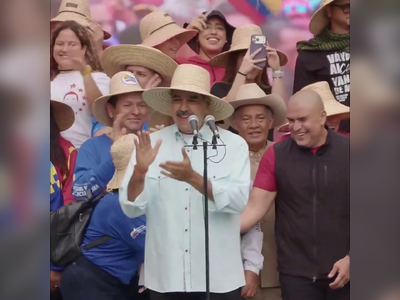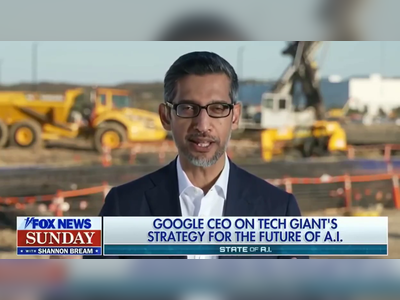
Javier Milei’s Economic Revolution: Bold Reforms to Reshape Argentina’s Future
A Libertarian Vision of Free Trade and Prosperity Amidst Economic Challenges
In a landmark move to revitalize Argentina’s struggling economy, President Javier Milei announced the elimination of import tariffs on a wide range of goods, including food, electronics, cosmetics, and more.
Declaring his commitment to economic freedom, Milei stated, "There is no prosperity without trade, and no trade without freedom," emphasizing his vision of an open market as the cornerstone of Argentina's resurgence.
The Context: From Austerity to Ambition
Milei’s rise to power was marked by his audacious "Chainsaw Plan," a bold austerity initiative aimed at slashing a budget deficit that had ballooned to over 6% of GDP. Within a year, he reduced the deficit to 4%, paving the way for his next major reform—abolishing the very import taxes he initially raised to stabilize the economy.
This move is not merely a policy shift but a demonstration of his libertarian ideals: a government that empowers individuals and businesses through minimal intervention.
The impact of Argentina’s previous protectionist policies was stark.
Basic goods were priced exorbitantly higher than in global markets.
An air fryer costing $100 in the U.S. was $300 in Argentina, while an iPhone 15 retailed for an astonishing $2,800—over three times the American price.
These inflated prices, driven by layers of tariffs and taxes, burdened Argentine consumers and stifled economic growth.
Tackling Inflation: A National Priority
At the heart of Milei’s reforms is a resolute focus on curbing Argentina’s chronic inflation, which had reached a staggering annual rate of 211.4% when he assumed office.
Within months, his policies reduced monthly inflation from 25.5% to 2.4%, a feat many deemed improbable.
The elimination of tariffs is expected to further alleviate inflationary pressures by reducing the cost of imported goods, enabling consumers to access affordable products and stimulating competition.
Milei’s strategy also targets industrial and service sectors that rely on imported inputs.
By lowering production costs, the reforms aim to enhance the competitiveness of Argentine businesses, creating a ripple effect of economic benefits across industries.
A Libertarian Economic Vision
Milei’s policies are deeply rooted in his libertarian philosophy.
He envisions an Argentina where free markets drive innovation, efficiency, and prosperity.
"Removing barriers to trade is not just an economic imperative but a moral one," he has often stated, emphasizing the importance of individual freedom in economic decision-making.
This approach stands in contrast to the protectionist policies prevalent in much of Latin America, as well as the strategies of leaders like Donald Trump.
While Trump advocates tariffs as a tool to shield domestic industries, Milei believes in the power of open markets to uplift economies, even at the cost of short-term challenges for certain sectors.
Attracting Global Investment
Milei’s reforms have begun to reshape Argentina’s image on the global stage.
The nation’s rich lithium reserves, vital for electric vehicle batteries, have attracted interest from investors, including Tesla CEO Elon Musk.
By creating a more open and investor-friendly economy, Milei aims to position Argentina as a key player in the global energy transition.
Argentina’s risk premium, a measure of its economic stability, has plummeted from 1,930 points to 563 points in just a year under Milei’s leadership.
This dramatic reduction highlights growing confidence in the country’s economic trajectory and signals to international markets that Argentina is open for business.
Overcoming Domestic Challenges
Despite the optimism surrounding Milei’s reforms, challenges persist.
Local industries, long shielded by protectionist policies, face heightened competition from foreign imports.
Critics argue that this could lead to job losses and strain domestic production.
However, Milei counters that increased competition will drive efficiency, innovation, and ultimately higher wages for workers.
Additionally, Milei’s austerity measures, though effective in reducing the deficit, have come with social costs.
Poverty rates remain above 50%, and the economy is still recovering from years of mismanagement.
Yet, his consistent and transparent communication with the public—acknowledging the short-term pain for long-term gain—has earned him widespread support.
A New Chapter for Argentina
Milei’s reforms represent more than economic policy; they symbolize a transformative vision for Argentina.
By dismantling decades of protectionism, he seeks to redefine the country’s relationship with the global economy, foster innovation, and create opportunities for future generations.
His unwavering commitment to his principles, even in the face of significant challenges, has set a new standard for leadership in Argentina and beyond.
As Argentina transitions into this new era, the world watches closely.
Will Milei’s bold gamble pay off?
For now, his reforms have ignited hope and positioned Argentina as a potential model for libertarian economic policies in the 21st century.
Declaring his commitment to economic freedom, Milei stated, "There is no prosperity without trade, and no trade without freedom," emphasizing his vision of an open market as the cornerstone of Argentina's resurgence.
The Context: From Austerity to Ambition
Milei’s rise to power was marked by his audacious "Chainsaw Plan," a bold austerity initiative aimed at slashing a budget deficit that had ballooned to over 6% of GDP. Within a year, he reduced the deficit to 4%, paving the way for his next major reform—abolishing the very import taxes he initially raised to stabilize the economy.
This move is not merely a policy shift but a demonstration of his libertarian ideals: a government that empowers individuals and businesses through minimal intervention.
The impact of Argentina’s previous protectionist policies was stark.
Basic goods were priced exorbitantly higher than in global markets.
An air fryer costing $100 in the U.S. was $300 in Argentina, while an iPhone 15 retailed for an astonishing $2,800—over three times the American price.
These inflated prices, driven by layers of tariffs and taxes, burdened Argentine consumers and stifled economic growth.
Tackling Inflation: A National Priority
At the heart of Milei’s reforms is a resolute focus on curbing Argentina’s chronic inflation, which had reached a staggering annual rate of 211.4% when he assumed office.
Within months, his policies reduced monthly inflation from 25.5% to 2.4%, a feat many deemed improbable.
The elimination of tariffs is expected to further alleviate inflationary pressures by reducing the cost of imported goods, enabling consumers to access affordable products and stimulating competition.
Milei’s strategy also targets industrial and service sectors that rely on imported inputs.
By lowering production costs, the reforms aim to enhance the competitiveness of Argentine businesses, creating a ripple effect of economic benefits across industries.
A Libertarian Economic Vision
Milei’s policies are deeply rooted in his libertarian philosophy.
He envisions an Argentina where free markets drive innovation, efficiency, and prosperity.
"Removing barriers to trade is not just an economic imperative but a moral one," he has often stated, emphasizing the importance of individual freedom in economic decision-making.
This approach stands in contrast to the protectionist policies prevalent in much of Latin America, as well as the strategies of leaders like Donald Trump.
While Trump advocates tariffs as a tool to shield domestic industries, Milei believes in the power of open markets to uplift economies, even at the cost of short-term challenges for certain sectors.
Attracting Global Investment
Milei’s reforms have begun to reshape Argentina’s image on the global stage.
The nation’s rich lithium reserves, vital for electric vehicle batteries, have attracted interest from investors, including Tesla CEO Elon Musk.
By creating a more open and investor-friendly economy, Milei aims to position Argentina as a key player in the global energy transition.
Argentina’s risk premium, a measure of its economic stability, has plummeted from 1,930 points to 563 points in just a year under Milei’s leadership.
This dramatic reduction highlights growing confidence in the country’s economic trajectory and signals to international markets that Argentina is open for business.
Overcoming Domestic Challenges
Despite the optimism surrounding Milei’s reforms, challenges persist.
Local industries, long shielded by protectionist policies, face heightened competition from foreign imports.
Critics argue that this could lead to job losses and strain domestic production.
However, Milei counters that increased competition will drive efficiency, innovation, and ultimately higher wages for workers.
Additionally, Milei’s austerity measures, though effective in reducing the deficit, have come with social costs.
Poverty rates remain above 50%, and the economy is still recovering from years of mismanagement.
Yet, his consistent and transparent communication with the public—acknowledging the short-term pain for long-term gain—has earned him widespread support.
A New Chapter for Argentina
Milei’s reforms represent more than economic policy; they symbolize a transformative vision for Argentina.
By dismantling decades of protectionism, he seeks to redefine the country’s relationship with the global economy, foster innovation, and create opportunities for future generations.
His unwavering commitment to his principles, even in the face of significant challenges, has set a new standard for leadership in Argentina and beyond.
As Argentina transitions into this new era, the world watches closely.
Will Milei’s bold gamble pay off?
For now, his reforms have ignited hope and positioned Argentina as a potential model for libertarian economic policies in the 21st century.










